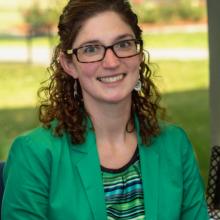More Fun than Play: Informal Learning
Concurrent Session 2
Brief Abstract
Does learning occur outside traditional learning? Of course it does! Take a peek at a model that leverages organic processes of learning that emerges naturally from learners’ intrinsic and extrinsic motivations catalyzed by community, and results in experiential insights. Choose from a plethora of techniques and examples. Generate your own informal learning program.
Presenters



Extended Abstract
To maintain a professional network initiated by the OLC, a group of leaders in digital learning have been meeting monthly to engage, encourage each other in careers, and be a sounding board for projects or initiatives at their respective institutions. After several conversations, the group members exchanged ideas about specific language in learning, neurodivergence, informal learning, and networks to join in digital learning. Those leaders are enjoying their informal learning opportunities so much they decided to submit this proposal.
Informal learning is a more socialized and borderless environment that is spontaneous in format and has no structured content, and is “observation and imitation, cooperation and communication, and personal reflection” which allows for more personalized learning (Yu, Liu, Huang, & Cao, 2021). Informal learning experiences have been defined as “vivid, emotional, unexpected, and idiosyncratic…real, often social and essentially engaging” and therefore are meaningful and create lasting connections (Kennedy, 2018, p. 22).
In this discovery session, attendees will learn how informal learning can happen with intention, the presenters will define communities that they have created or joined that allow for informal learning opportunities, attendees will be asked to engage in a conversation to discuss the elements that help generate and measure informal learning.
The benefits to informal learning are experiential insights (Kolb, 2014), innovation (Yu, Liu, Huang, & Cao, 2021), and creating a sense of connectedness and belonging (Kennedy, 2018) within a community which can be felt even in this discovery session. The connections attendees make with others' experiences and stories catalyze new and interesting ways to think about our world. After all, isn’t that what informal learning is: there is no definite (or defined) ending to the learning.
Plan for interactivity
Attendees will group together based on commonalities
Attendees will engage in an open, collaborative discussion on personal informal learning experiences
References
Kennedy, J. (2018). Towards a model of connectedness in personal learning networks. Journal of Interactive Online Learning, 16(1).
Kolb, D. A. (2014). Experiential learning: Experience as the source of learning and development. FT press.
Morieson, L et al. Belonging in Space: Informal Learning Spaces and the Student Experience. Journal of Learning Spaces, [S.l.], v. 7, n. 2, dec. 2018. ISSN 21586195. Available at: <https://libjournal.uncg.edu/jls/article/view/1667>. Date accessed: 08 may 2023.
Yu H., Liu P., Huang X., & Cao Y. (2021). Teacher online informal learning as a means to innovative teaching during home quarantine in the COVID-19 pandemic. Frontier Psychology 12:596582. doi: 10.3389/fpsyg.2021.596582

